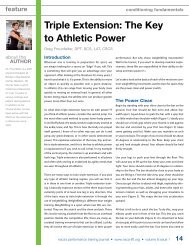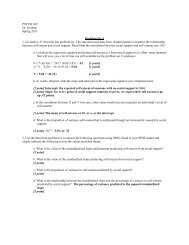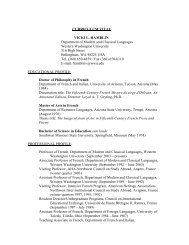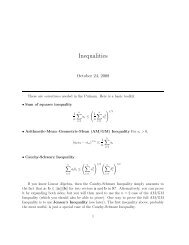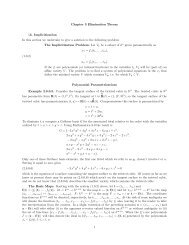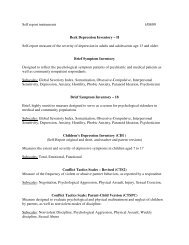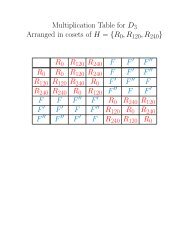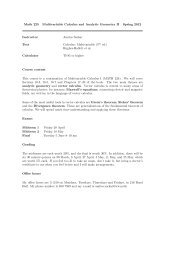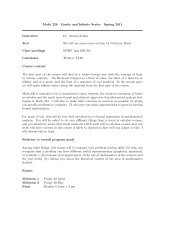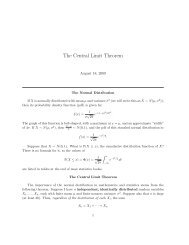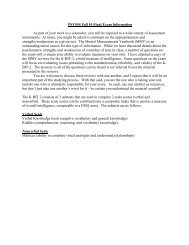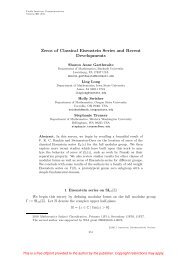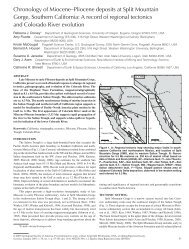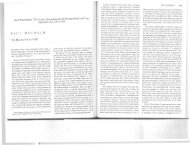Can There Be A Knowledge-First Ethics of Belief? - Western ...
Can There Be A Knowledge-First Ethics of Belief? - Western ...
Can There Be A Knowledge-First Ethics of Belief? - Western ...
You also want an ePaper? Increase the reach of your titles
YUMPU automatically turns print PDFs into web optimized ePapers that Google loves.
For any person s, world w and time t: (s should believe p at t in<br />
w) iff (s knows p at t in w)<br />
I will consider numerous views in this paper, and it would be cumbersome<br />
to state each <strong>of</strong> them so explicitly. Thus I will <strong>of</strong>ten leave implicit the<br />
quantifiers over people, worlds, and times, as well as leaving implicit the<br />
point that the biconditionals are material.<br />
As for the narrow scope identity theory, it is clearly mistaken. <strong>Knowledge</strong><br />
entails belief; hence it follows from the narrow scope identity theory that<br />
whenever we should believe we do believe. This is tantamount to the claim<br />
that we cannot fail to believe what we should, which is absurd. It will help to<br />
have a name for this particular absurd result. We’ll say that a theory entails<br />
“compulsory completeness with respect to what we should believe”, or in<br />
short, “compulsory completeness”, when it entails that we always believe<br />
everything we should.<br />
This terminology is borrowed in the obvious way from logic. Just as a logical<br />
system is complete with respect to a given property x iff every formula<br />
having x is a theorem, one’s belief corpus is complete with respect to a<br />
given property x iff every proposition having x is something one believes.<br />
From an epistemic point <strong>of</strong> view, it is good for one’s belief corpus to be<br />
complete with respect to what one should believe. Of course, it is possible<br />
for our belief corpuses to not be complete with respect to what we should<br />
believe. Theories denying this possibility have the problem <strong>of</strong> compulsory<br />
completeness.<br />
The narrow scope identity theory is false because it has this very problem.<br />
Of course, there is an easy fix. We can just widen the scope <strong>of</strong> the “should”<br />
(as Sutton does by putting the colon after his “must”, and as Williamson<br />
means to do with his own principle). This gives us<br />
Wide Scope Identity Theory<br />
You should (believe p iff you know p)<br />
Or, to put it completely explicitly,<br />
For any person s, world w and time t: s should not be such that<br />
he believes p at t in w without knowing it, or such that he knows<br />
p at t in w without believing it.<br />
7



